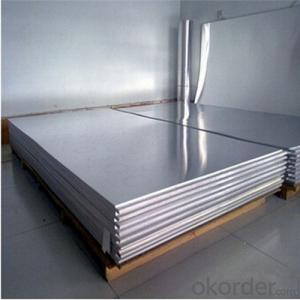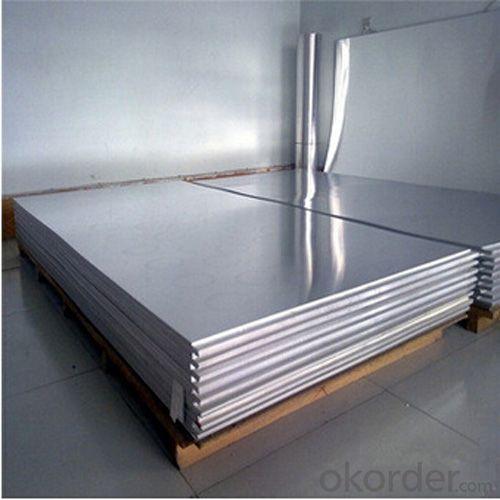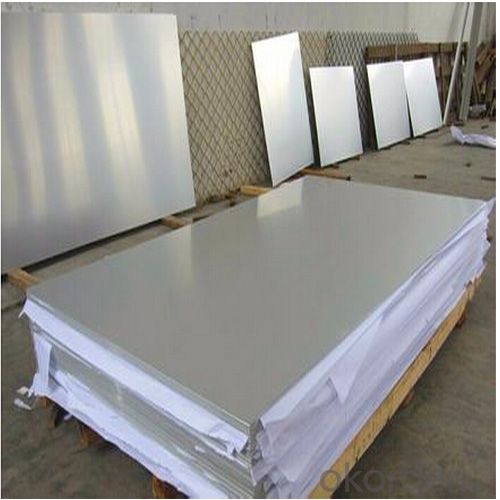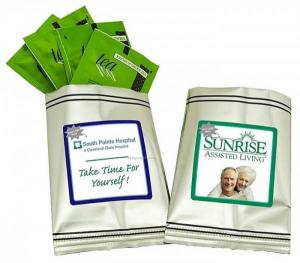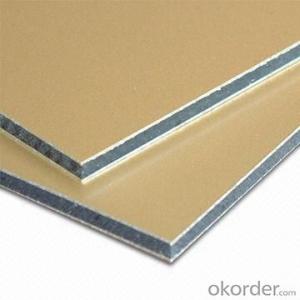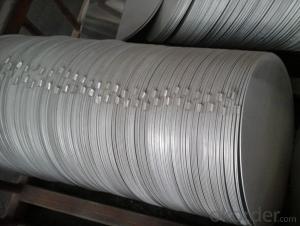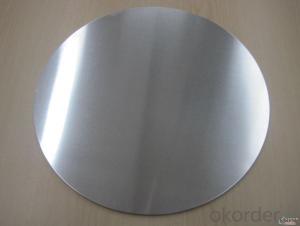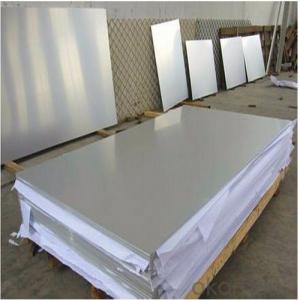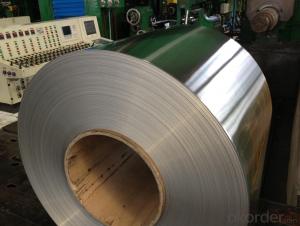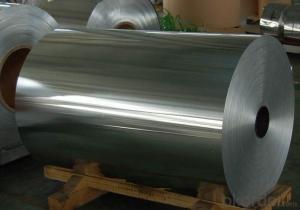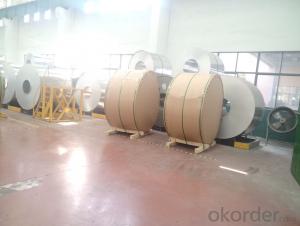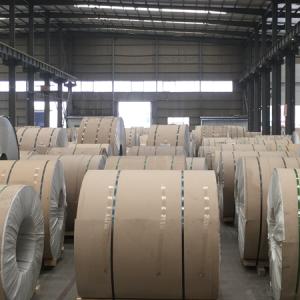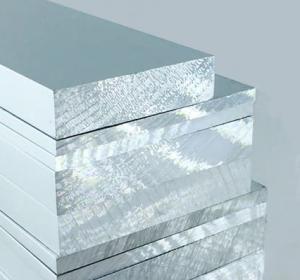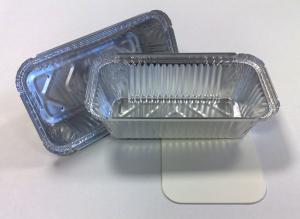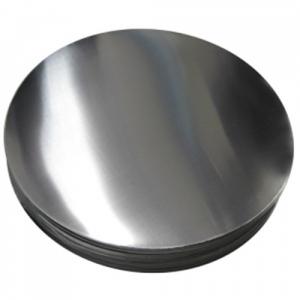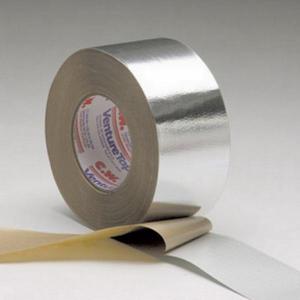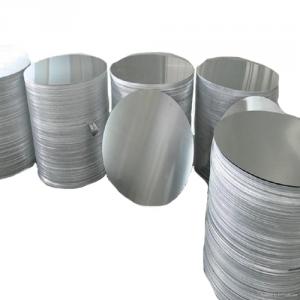High Quality Aluminum Marine Grade 5086 Alloy Plate
- Loading Port:
- Shanghai
- Payment Terms:
- TT OR LC
- Min Order Qty:
- 5 m.t
- Supply Capability:
- 10000 m.t/month
OKorder Service Pledge
OKorder Financial Service
You Might Also Like
Specification
1.Structure of Aluminum Alloy 5086 Plate For Marine Description:
5000 series aluminum alloy is a common aluminum alloy series, the main alloy elements are magnesium, the content of magnesium is 3-5%.It's non-Heat treatable aluminum alloy with good corrosion resistance, good machinability, good electric arc welding performance,beautiful surface after anodic treatment.Commonly used in aviation,shipping field,also extensive used in the conventional industry,such as cars,planes,welding pieces,Metro and light rail,need strict fireproof pressure vessel,such as liquid tankers,refrigerated trucks, refrigerated container,refrigeration equipment,television tower,drilling equipment,transportation equipment,missile parts,armor,etc.
2.Main Features of Aluminum Alloy 5086 Plate For Marine:
PVC Protect Film
Waterproof paper
High Quality
Competitive Price
3. Aluminum Alloy 5086 Plate For Marine Images:
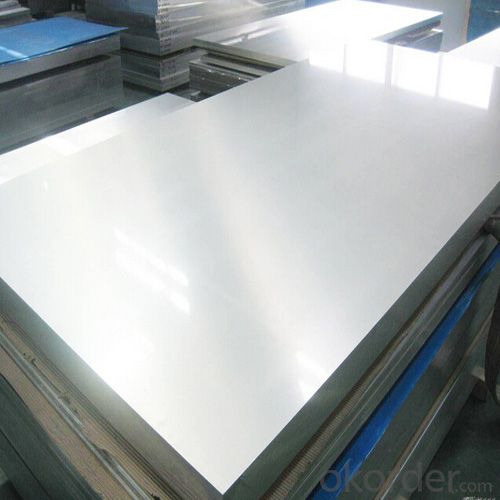
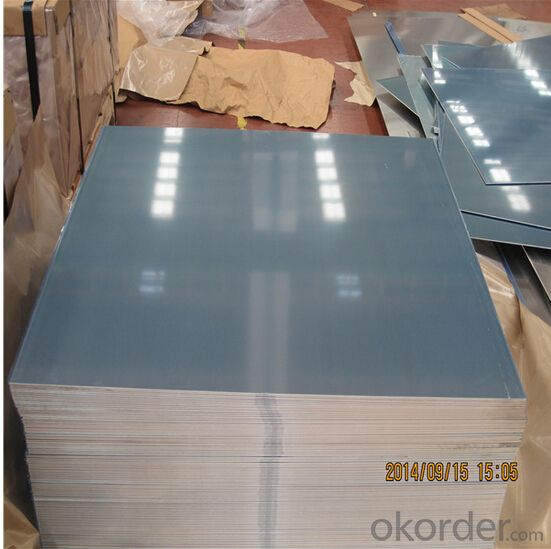
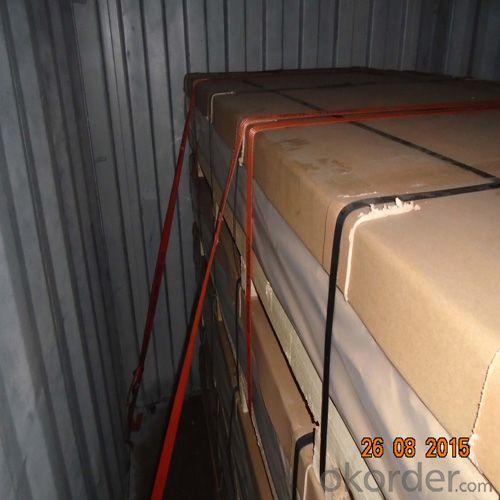
4. Aluminum Alloy 5086 Plate For Marine Specification:
Standard | GB/T3190-2008, GB/T3880-2006, ASTM B209, JIS H4000-2006 .etc |
Thickness | 0.2-200mm aluminium 5050 H38 |
Width | 1250mm 1000mm or as your requirements |
Length | 3000mm 5800mm or as your requirements |
MOQ | 5 Ton |
Package | Standard export package, by wooden box or as require |
5.FAQ
Q1.How long have you been in this product?
A1:More than 10 years.
Q2. What's the minium quantity(MOQ)?
A2. 5 Metric tons
Q3. How long is shipping time?
A3. 7 (ready-made products)-25 days(OEM)
Q4. How do you guarantee the quality?
A4. 1. Cooperating and Exchaning experience with sevral quoted aluminum companies
2. Japanese and Swiss production line and skilled works (regular training and testing)
3. more than 10 years production experience.
Q5. Do you have after sale service?
A5. Yes. Any quality problem occurs within one year, pls take photoes,we will be responsible.
- Q: This question asks about the impact of aluminum usage on the global economy, including its role in various industries and its influence on trade and economic development.
- <p>The use of aluminum significantly affects the global economy due to its versatility and widespread application in numerous industries such as construction, automotive, aerospace, and packaging. As the third most abundant element in the Earth's crust, aluminum is a key material in modern manufacturing, contributing to economic growth through job creation and technological advancement. It also plays a crucial role in trade, with major producers like China, Russia, and Canada exporting large quantities, influencing global supply chains and trade balances. Additionally, the demand for aluminum drives exploration and investment in mining, further impacting economic development in resource-rich regions. However, the environmental and sustainability concerns associated with aluminum production, such as energy consumption and waste, also present challenges that can affect economic stability and growth.</p>
- Q: This question asks about the environmental effects caused by the extraction and processing of aluminum.
- <p>The environmental impacts of mining and processing aluminum are significant. Mining can lead to deforestation and habitat destruction, affecting biodiversity. The process of bauxite extraction releases large amounts of greenhouse gases, contributing to climate change. Additionally, the production of aluminum is energy-intensive, often relying on fossil fuels, which further exacerbates environmental issues. The release of toxic chemicals and heavy metals during processing can contaminate soil and water, posing risks to both ecosystems and human health. Moreover, the waste generated, such as red mud, can cause severe environmental damage if not properly managed. Overall, the aluminum industry has a substantial environmental footprint that requires sustainable practices to mitigate its effects.</p>
- Q: This question asks about the methods to determine the safety of a specific brand's aluminum products.
- <p>To determine if a particular brand of aluminum products is safe to use, one should look for certifications and standards compliance. Check if the brand has certifications such as ISO 9001 for quality management systems or specific safety certifications relevant to aluminum products. Look for compliance with safety standards like ANSI, ASTM, or EN standards. Additionally, research customer reviews and testimonials, and consider third-party lab testing results. It's also important to inquire about the manufacturing process to ensure it adheres to environmental and health safety regulations. Lastly, consult with industry experts or regulatory bodies for their assessment of the brand's safety practices.</p>
- Q: Is it safe and effective to use aluminum foil for wrapping food items in a freezer?
- <p>Yes, you can use aluminum foil to wrap food in the freezer. Aluminum foil is a good insulator and can help protect food from freezer burn. It also prevents cross-contamination and keeps odors from affecting other foods. Ensure the foil is tightly wrapped around the food to maintain freshness and quality. However, for long-term storage, it's recommended to use airtight containers or freezer-safe plastic bags in addition to or instead of foil, as they can provide better protection against freezer burn and moisture loss.</p>
- Q: Compared with other aluminum veneers, what are the advantages?
- 1, exquisite appearance, grain pattern rich, realistic effect, clear texture.2, fire resistance: corrosion resistance, moisture resistance, hardness and strength are compared to wood floating method.3, rust prevention, anti damage, UV protection.4, long service life, can maintain 10-15 years without color, no deformation.5, strong plasticity, can be processed into a variety of complex shapes, the back of which can be filled with insulation, sound insulation, sound-absorbing and other materials, so that its function more rich.6, environmental protection, ecological environment protection, reduce waste of materials and resources.
- Q: This question asks about the potential health advantages of using food packaging materials that do not contain aluminum.
- <p>Yes, using aluminum-free food packaging materials can have several health benefits. Aluminum has been linked to potential health risks such as Alzheimer's disease, although the evidence is not conclusive. By eliminating aluminum, there is a reduced risk of exposure to this potentially harmful element. Additionally, aluminum-free packaging can be beneficial for individuals with allergies to aluminum. It also supports environmental sustainability as some aluminum-free alternatives are biodegradable, reducing the environmental impact of packaging waste. Overall, choosing aluminum-free packaging can contribute to a safer and healthier lifestyle.</p>
- Q: Explain how aluminum influences the synthesis and function of neurotransmitters.
- <p>Aluminum has been suggested to affect the production of neurotransmitters by potentially disrupting the normal functioning of enzymes and receptors involved in neurotransmitter synthesis and release. It may interfere with the uptake of essential metals like magnesium and zinc, which are crucial for the proper functioning of neurotransmitter systems. Aluminum can also alter the permeability of cell membranes, affecting the transport of neurotransmitters across the synaptic cleft. Additionally, there is evidence that aluminum may contribute to oxidative stress, which can impair the synthesis and function of neurotransmitters. However, it's important to note that the exact mechanisms are not fully understood, and more research is needed to establish a definitive link between aluminum exposure and neurotransmitter dysfunction.</p>
- Q: This question asks about the impact of using aluminum tools and equipment in the workplace.
- <p>Using aluminum tools and equipment in the work environment can have several effects. Firstly, it can enhance safety due to aluminum's non-magnetic and non-conductive properties, which reduce the risk of electrical hazards. Secondly, aluminum is lightweight, which can decrease fatigue for workers and improve efficiency. Additionally, its corrosion resistance means longer tool life and less frequent replacement, which can save costs. However, aluminum's lower strength compared to some other metals might limit its use in high-stress applications. Overall, the choice to use aluminum depends on balancing these factors with the specific requirements of the work environment.</p>
- Q: This question asks for an overview of the various types of aluminum alloys that exist.
- <p>Aluminum alloys are categorized into several series based on their primary alloying elements. The main types include: 1. 1xxx series: Pure aluminum alloys with 99.00% minimum aluminum content. 2. 2xxx series: Aluminum-copper alloys, known for their high strength. 3. 3xxx series: Aluminum-manganese alloys, which offer good formability and moderate strength. 4. 4xxx series: Aluminum-silicon alloys, used for welding wire and filler materials. 5. 5xxx series: Aluminum-magnesium alloys, characterized by good formability and corrosion resistance. 6. 6xxx series: Aluminum-silico-magnesium alloys, known for their high strength and excellent machinability. 7. 7xxx series: Aluminum-zinc-magnesium alloys, which are the strongest and most widely used in the aerospace industry. These alloys have various applications based on their unique properties, such as strength, corrosion resistance, and formability.</p>
- Q: This question inquires about the potential differences in cooking performance when using various types of aluminum foil.
- <p>Yes, there are differences in cooking performance between different types of aluminum foil. The thickness of the foil can affect heat distribution and cooking time; heavier gauges are more durable and better for roasting and baking, while thinner foils are suitable for lining pans or wrapping foods. The quality of the foil, such as whether it's non-stick or not, can impact food release and cleanup. Additionally, some aluminum foils are designed to be heat resistant up to higher temperatures, making them suitable for broiling or grilling, while others may not withstand such high heat. It's important to use the appropriate type of aluminum foil for the specific cooking method to ensure food safety and optimal results.</p>
Send your message to us
High Quality Aluminum Marine Grade 5086 Alloy Plate
- Loading Port:
- Shanghai
- Payment Terms:
- TT OR LC
- Min Order Qty:
- 5 m.t
- Supply Capability:
- 10000 m.t/month
OKorder Service Pledge
OKorder Financial Service
Similar products
Hot products
Hot Searches
Related keywords
